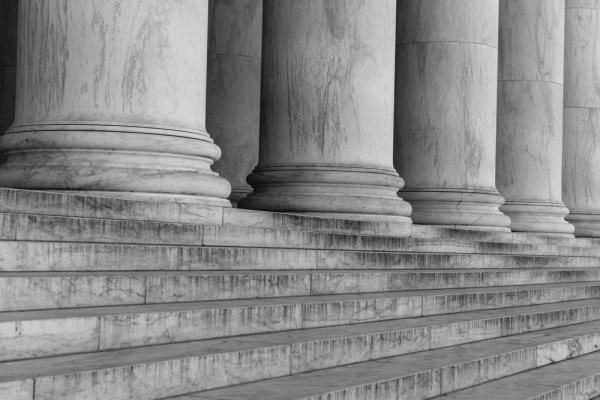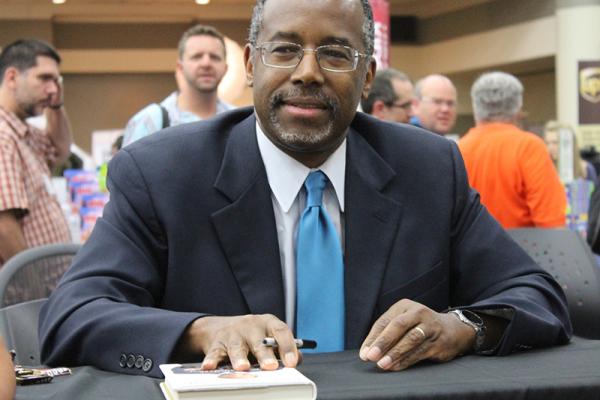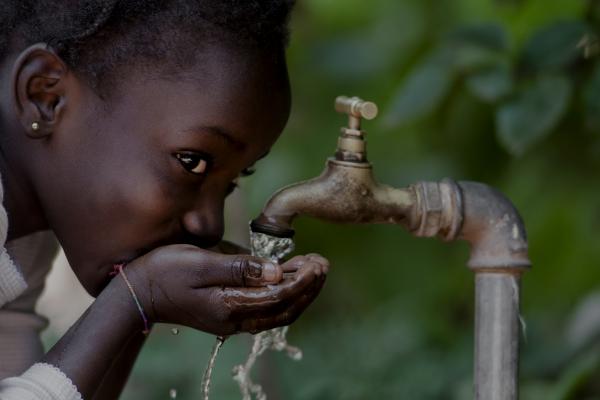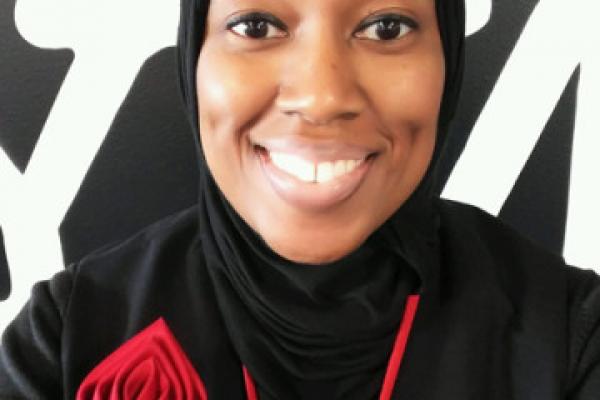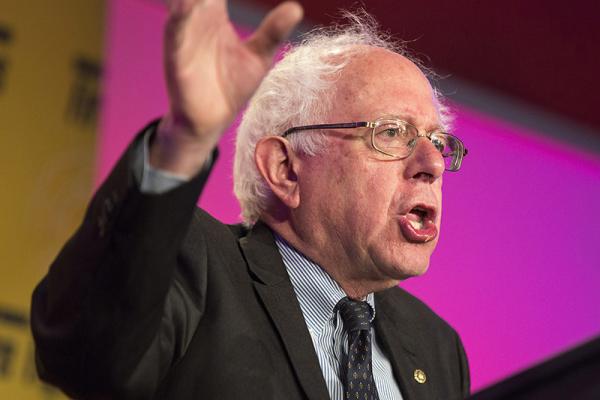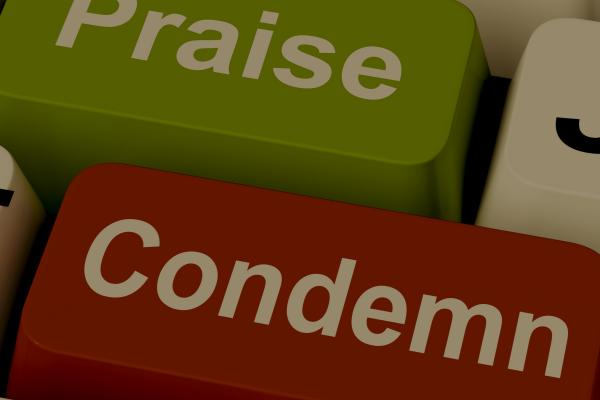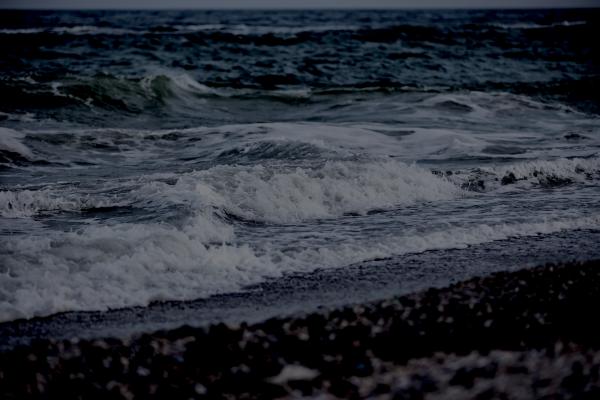Last fall, in the middle of my first attempt at the academic job market, I got invited to a wedding in far west Texas. By “far west Texas” I mean Marathon, in the part of the state known as Big Bend, about a seven-hour drive from my house. It’s a beautiful drive, moving from the Hill Country of central Texas into grasslands that, somewhere between Sonora and Ozona, give way into the desert that leads up into the low mountains of Big Bend. Or at least I find the drive beautiful — another wedding guest complained at the rehearsal dinner that there was nothing to look at on the drive.
I had some time to go for a run on Saturday morning, so I laced up my shoes and headed down Avenue D, across 1st street and a pair of train tracks. A quarter-mile later (no suburbs or outskirts in Marathon), I was in the desert.
Joan Didion says we’re “well advised to keep on nodding terms with the people we used to be” because “otherwise they turn up unannounced and surprise us, come hammering on the mind’s door at 4 a.m. of a bad night and demand to know who deserted them, who betrayed them, who is going to make amends.”
Well, 17-year-old me isn’t as mad as Didion’s younger self sounds, but he was out there in the desert nonetheless, asking, "Why haven’t you been back here?"
The city of Baltimore has agreed to a settlement with Freddie Gray's family, reports The New York Times.
Ben Carson, the retired neurosurgeon once best known for separating conjoined baby twins, announced May 4 that he will pursue the Republican nomination for U.S. president. Carson is now known as a culture warrior whose criticisms of President Obama have made him a favorite of conservatives. Here are five faith facts about him:
1. He’s a twice-baptized Seventh-day Adventist.
In his book Gifted Hands, Carson, 63, describes being baptized as a boy by the pastor of Detroit’s Burns Seventh-day Adventist Church. At age 12, he told the pastor of another Adventist church in the Detroit suburb of Inkster, that he hadn’t completely grasped his first baptism and wanted to be baptized again.
Carson has served as an Adventist local elder and Sabbath school teacher. But he attends other churches. “I spend just as much time in non-Seventh-day Adventist churches because I’m not convinced that the denomination is the most important thing,” he told RNS in 1999.
“I think it’s the relationship with God that’s most important.”
Try to imagine your morning routine without water. Brushing your teeth, taking a shower, using the bathroom, making tea or coffee. Practically every step requires a lot of water — clean and easily accessible.
For millions of women around the world, the morning routine is very different.
In developing countries around the world, women spend up to five hours every day collecting water from distant and often polluted sources, returning to their villages carrying 40-pound jerry cans on their backs. Water.org reports that women and children in 45 developing countries bear the primary responsibility for water collection. Bodies break down under the weight and often the water makes families sick. Some 50 diseases are related to poor water quality and lack of sanitation. And it’s the children under five who suffer the most.
Dignity and safety are hard to come by in a world without water and sanitation. Women and girls must sneak off into a secluded field in the dark of night for privacy, where some will be molested or raped. When a girl reaches puberty, she is either humiliated at school or misses several days each month — many drop out altogether just to manage menstruation. It’s an unfair reality that keeps millions of young women in poverty, with no way out.
A Muslim flight attendant said the Atlanta-based airline ExpressJet suspended her for refusing to serve alcohol, a practice that is against her religious beliefs.
Charee Stanley filed a discrimination complaint with the Equal Employment Opportunity Commission last week, saying she wants to do her job without serving alcohol, as she was doing before her suspension, her lawyer said.
Lena Masri, an attorney with the Michigan chapter of the Council on American-Islamic Relations, said no one “should have to choose between their career and religion.”
Employers, she told CNN, must “provide a safe environment where employees can feel they can practice their religion freely.”
Sen. Bernie Sanders, I-Vt., a self-identified socialist who’s perhaps the most left-leaning member of Congress, is expected to announce this week that he will seek the Democratic nomination for president. Sanders, 73, was born to Jewish parents and identifies as Jewish — though culturally, not religiously. Most political observers call him a super long shot for the nomination, but he will appeal to Democratic voters who admire his constant exhortations against the growing gap between the haves and the have-nots.
1. He is the anti-Bible thumper.
Sanders is the presidential contender most willing to dissociate himself from religion. Though he identifies as Jewish and by Jewish law is Jewish, he has freely acknowledged that he is not a religious person. He scored a solid zero from Ralph Reed’s Faith and Freedom Coalition in its most recent scorecard and a 100 from the abortion rights group NARAL Pro-Choice America.
Many countries in the global community do not have the right to free speech. In the U.S., our right to speak out is protected under the Constitution. How well do we live up to the responsibility granted with that freedom?
The Epistle of James is written to urge Christians to practice the ethic of Israel’s covenantal, prophetic tradition. In this particular text, the apostle reflects on the enormous power of speech and the potential of the tongue for doing good or evil. Appeal to the covenantal, prophetic tradition of Israel may suggest two connections for us. First, the covenantal commandments of Sinai, the Ten Commandments, already have in their purview the cruciality of "right speech" — the ninth commandment prohibits "false witness."
The original reference concerns testimony in court. In larger horizon, however, the commandment pertains to the neighbor.
There is no political outcome that will make these children not drowned. There is no politics that will pull their shirts down to cover their exposed tummies, the way a parent’s loving hand would do. There is no politics that will make their drenched clothing anything other than the last outfit their parents ever clothed them in, unaware when they did so that it would be the clothing in which their children would die. There is no politics that will give these children another life that does not end in terror and despair and cold water. (God, God, how does one write words like this?) There is no politics that will give their parents anything but the end they had: of going into the dark knowing that their dear ones were lost forever.
All this is permanent. It is done and cannot and will not and will never be undone. And while I am all for good politics, which is to say I am all for a good future, and so I am all for doing better by the refugees that yet live, I also refuse to let the past go as if it were merely the gravel under the sub-foundation of whatever shiny tomorrow we happen to build next.
There is no politics that can redeem what time has irretrievably taken. To stand as witness to the past is to stand either in utter nihilism and despair, or in the desperate, desperate hope that in the end a Redeemer will walk upon the earth, who will bring forth those whose flesh was destroyed, to see and be loved forever by God.
In C.S. Lewis’ beloved Narnia chronicles, the youngest of the four main characters, a little girl named Lucy, encounters Aslan, the lion who is an archetype for God.
She hasn’t seen him for a time, and she remarks, “Aslan, you are bigger.”
Aslan replies, with his strong, gentle voice, “Every year you grow, so shall I.”
As parents we are saddled with some anxiety to make sure we teach our children everything that they need to know within the short eighteen years we have them in our home. But when it comes to our faith, we can breathe easy, because our God is not One who can be limited to eighteen years of instruction. We get to walk with our children in this very beginning of their journey, and watch them dip their toes into just how wide and long and high and deep is the love of God.
The question we need to ask when our children leave home is not, "Have you learned everything there is to know about God?"
But, "Are you ready to get started?"
1. Can the Evangelical Left Rise Again?
“The Evangelical left, once a substantial contingent of American life, is now seemingly small and powerless compared to its rightwing counterpart.”
2. Why Every Church Needs a Drag Queen
Nadia Bolz-Weber, everyone’s favorite tattoo-sporting, grace-spouting priest, is back with a new book, Accidental Saints.
3. One Novel Way to Bring Healthcare to Poor Neighborhoods
A local neighborhood health center believes it has developed an approach that works for their clients in poverty — partnering with a local grocery story to combine the shopping and medical experience into one outing.

